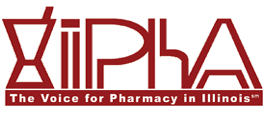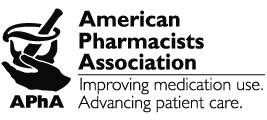Three Tips Regarding Social Media Use for Medical Professionals
 Social media has dramatically changed the way people interact with one another, and it has become a large part of life for many people. In fact, a recent study found that about 244 million Americans—about two-thirds of the entire population!—use some type of social media. Many professionals, including lawyers, accountants, and consultants, maintain various social media accounts, as do many doctors, psychologists, dentists, and other healthcare professionals. In light of modern privacy laws, however, medical professionals must be sure that their social media posting remains ethical and compliant with the standards that apply to such individuals.
Social media has dramatically changed the way people interact with one another, and it has become a large part of life for many people. In fact, a recent study found that about 244 million Americans—about two-thirds of the entire population!—use some type of social media. Many professionals, including lawyers, accountants, and consultants, maintain various social media accounts, as do many doctors, psychologists, dentists, and other healthcare professionals. In light of modern privacy laws, however, medical professionals must be sure that their social media posting remains ethical and compliant with the standards that apply to such individuals.
Privacy and Ethics
A healthcare professional is required to follow a variety of privacy laws, the most notable of which is the Health Insurance Portability Act—more commonly known as HIPAA. While there are many elements to HIPAA, one of the law’s primary functions is to ensure that patient’s personal and healthcare information is well protected. Unfortunately, not all medical professionals are as careful on social media as they should be, and sometimes, a doctor or nurse might post something that violates HIPAA, leading to the possibility of action from the state licensing board.
Keeping Yourself Safe
If you are a healthcare professional who uses social media for personal or professional reasons, there are few things you can do protect yourself from potential problems:
- Keep your accounts separate. One of the best things you can do to keep yourself safe on social media is to establish separate accounts for personal and professional use, and know who your contacts are on each account. Your personal account should be limited to close friends and family members—consider using strict privacy settings—while your professional account can be used to help market your practice and to stay in appropriate contact with your patients.
- Be careful about your posts. Among the biggest concerns for healthcare professionals on social media is the sharing of a patient’s “protected health information,” as defined by HIPAA. Protected health information includes a patient’s name, address, health condition, details about the patient’s care, and much more. You should never post information about any patient unless you have express permission from the patient to make the post, and you should never post patient information on your personal accounts.
- Be cautious about being “friends” with patients. It is one thing for your patients to follow your professional social media account. It is another thing altogether for you to accept friend requests from patients on your personal accounts. If some of your personal friends are also your patients, it is important to be careful about the appearance of playing favorites.
Speak With an Illinois Professional License Defense Lawyer
For many medical professionals, social media can be a valuable and powerful tool that can help improve patient-providers relationships. It is true, however, that social media can also be a potential liability. If you use social media as a doctor, nurse, or other healthcare professional, contact an experienced Illinois medical license defense attorney. Call The Law Offices of Joseph J. Bogdan, Inc. at 630-310-1267 for a free consultation today.
Sources:
https://www.statista.com/statistics/273476/percentage-of-us-population-with-a-social-network-profile/
https://www.medscape.com/courses/section/917365














